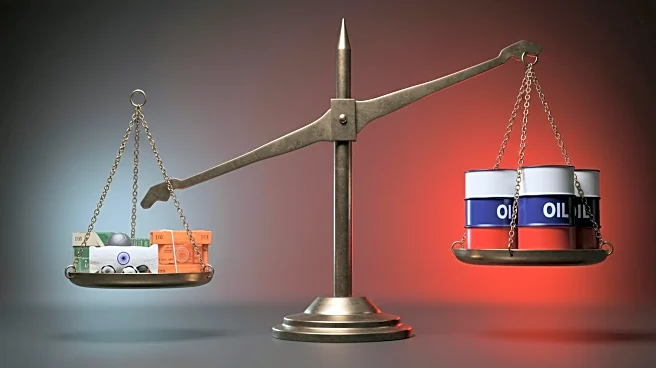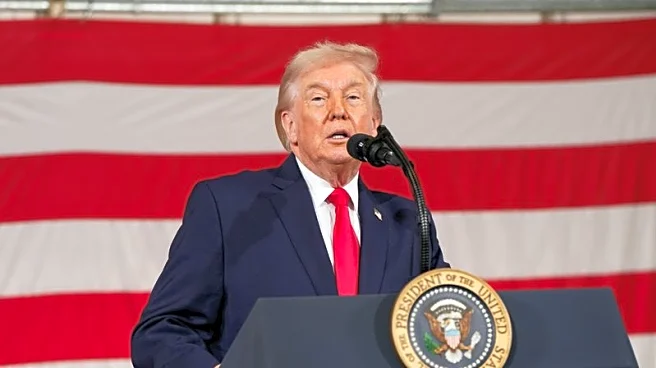What's Happening?
The U.S. has imposed a 25% tariff on Indian goods, with President Trump threatening to increase it to 50% by August 27. This move is part of the U.S. response to India's continued purchase of Russian oil, which the U.S. views as supporting Russian President Vladimir Putin's war efforts in Ukraine. India, which has historically relied on Middle Eastern oil, shifted its imports to Russia following the 2022 invasion of Ukraine and a price cap imposed by the Group of Seven nations. Russia offers oil to India at a 5% discount, making it an attractive option for India to manage domestic inflation. Despite the tariffs, India plans to maintain its current level of Russian oil imports, as stated by Evgeny Griva, Russia's deputy trade representative in India.
Why It's Important?
The tariff increase poses significant economic implications for India, potentially making its $85 billion in annual U.S. exports uncompetitive. This situation highlights the geopolitical tensions between the U.S., India, and Russia, with India defending its right to purchase oil from the cheapest source. The tariffs could strain U.S.-India relations, as India seeks to balance its economic interests with diplomatic ties. The ongoing trade tensions may also impact global oil markets and influence India's foreign policy, as it strengthens relations with Russia and China.
What's Next?
India's Prime Minister Narendra Modi is set to visit China, potentially signaling a shift in alliances amid rising tensions with the U.S. Additionally, India's External Affairs Minister Subrahmanyam Jaishankar is in Russia for bilateral talks, which may further solidify India's trade relations with Russia. The U.S. Treasury Secretary has reiterated the threat of increased tariffs, which could lead to further diplomatic negotiations or retaliatory measures from India.
Beyond the Headlines
The situation underscores the complex interplay of global trade, energy security, and geopolitical alliances. India's reliance on discounted Russian oil reflects broader economic strategies to manage inflation and maintain growth. The tariffs may prompt India to explore alternative markets and strengthen regional partnerships, potentially reshaping its foreign policy landscape.











